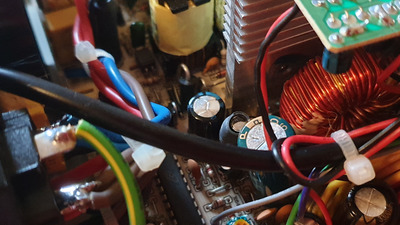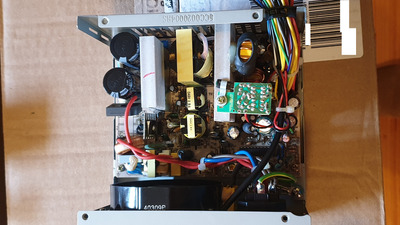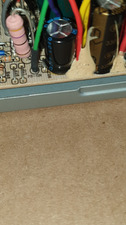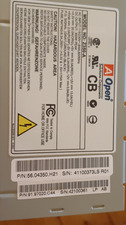AppleSauce wrote on 2021-09-20, 06:27:Righto I'll keep that in mind , is there anything else I should be wary of ,
like maybe different brands of caps behaving differently voltage distribution wise?
Or is that not really an issue?
Go with any of the 4 known quality Japanese brands (Nichicon, Panasonic, Rubycon or Chemi-Con). For the little caps you can use pretty much anything as long as it's rated 105C. If you're going to replace the two big caps on the primary (not strictly necessary, those don't fail often) try to get snap-in caps, they will fit better in there.
The series you choose is important for the caps on the different outputs (especially +5V, +12V, +3.3V and +5VSB). For those get low ESR caps, but try to avoid the ultra-low ones, those may cause problems. Good series for a PSU of that era would be Nichicon PW/PM, Rubycon YXF/YXG or Chemi-Con LXZ. Try to search for series with specs similar to those.
When recapping a PSU that is almost identical to yours I found that there were no replacements of the 10V rated caps at the +5V output that would fit, so I used caps rated at 6.3V as they were smaller. But you must be careful if you're going to go with a lower rated voltage, it's important to know what voltage there will be across that cap. In some cases manufacturers use custom made caps that are smaller than what is commercially available and you run into these issues.





